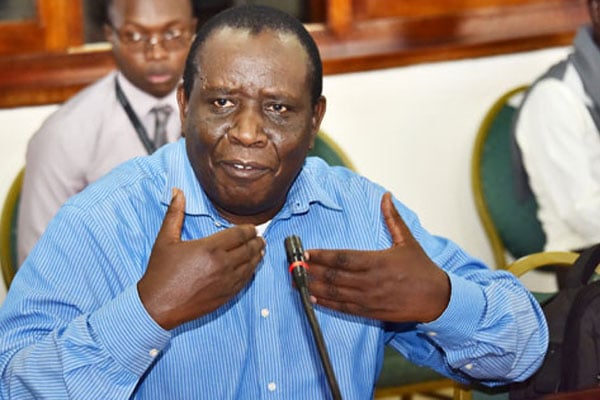Prime
Why Ugandans do not report corruption cases

President Museveni gestures during the launch of Uganda Electronic Investors Protection Portal (EIPP) at the State House, Entebbe, on Wednesday last week. PHOTO/ PPU
What you need to know:
- The numbers show only 17 percent feel confident enough to report corruption while 81 percent say they face a risk of retaliation or other consequences.
A research survey by Afrobarometer, an African think tank, has revealed that majority of Ugandans do not consider corruption as the most pressing problem, while those who do, opt not to report it for fear of retaliation.
For a substantial number, giving a bribe is the only way to obtain a service.
The numbers show only 17 percent feel confident enough to report corruption while 81 percent say they face a risk of retaliation or other negative consequences.
Only 18 percent of Ugandans consider corruption as one of the most important problems facing this country, ranking it in 11th position – behind unemployment, management of the economy, and the provision of key services such as health, water supply and infrastructure, roads, as well as crime and security.
“Despite its corrosive effects on democracy, development, and security, many African citizens do not rate corruption among their top priorities for government intervention,” the report, released on December 6, states.
Statistics also show Uganda’s fight against corruption has stagnated. Of the 39 countries where a similar study was conducted, Uganda ranked 29th when it comes to government commitment in fighting corruption, with 80 per cent of respondents saying the government is doing “fairly badly or very badly”. Kenya ranked 23rd, while Sudan was worst performing.
Aggregate findings from all countries paint police as most corrupt followed by tax officials, civil servants, officials in the presidency and Members of Parliament. Substantial numbers reported having to pay bribes to avoid a problem with the police, to obtain police assistance or to obtain a government document.
Ugandan police ranked most corrupt with 75 percent of the respondents saying “most or all of them are involved in corruption”.
Mr Fred Enanga, the force spokesperson, said he would comment on the matter after perusing the report.
“For policy makers and civil society, these findings point to a need for renewed efforts to fight corruption and for improved strategies to increase citizens’ sense that they are safe in reporting corruption,” the report states.
Speaking into the growing apathy among Ugandans, Mr Marlon Agaba, the executive director of Anti-Corruption Coalition Uganda (ACCU), pointed at loopholes in the law, aggravated by poor implementation.
“The challenge we have is that the whistle blowers protection act is not working. There is no government agency for implementing it and also due to limited funding. Sometimes the agencies reported to reveal the identities of people reporting. We have had scenarios where whistleblowers have been attacked, jailed or their houses burnt,” Mr Agaba said.
He added: “we have no witness protection law in Ugandan. People who report corruption, when called as a witness in court, there is no comprehensive mechanisms for protecting them. So people’s fears are well grounded. And also responsiveness from state anti-corruption agencies is quite low, which creates apathy. Corruption has been normalized sadly. It has become part of our culture and norms. That’s why Ugandans don’t see it as a priority problem.”
Dr Patricia Achan Okiria, the deputy Inspector of Government, told this publication they will continue to sensitise citizens and encourage them to report corruption. The team at the Inspectorate of Government (IG) has fronted a citizen- focused approach to curb corruption.
“The community score card is a very important anti-corruption tool because it is a social accountability tool where we get feedback from the community on the level of service to the community. We do spot checks, then get to engage with the community. We have the community working groups who basically monitor government projects,” she said.
“The whole thing of someone reporting a case and no action is taken is so devastating and yet we are encouraging them to report. We just need to empower the people to report with confidence. We are also disseminating laws and equipping the community to demand for accountability from an informed pointed point of view,” she added.
In a publication titled the cost of corruption by the IG, Uganda loses close to Shs10trillion to corruption. This despite multiple interventions by the government, including the creation of multiple agencies to fight the vice.
In the latest initiatives, President Museveni on December 14 launched the Electronic Investor Protection Portal (EIPP), aimed at helping investors to report complaints against corruption directly to state house.




